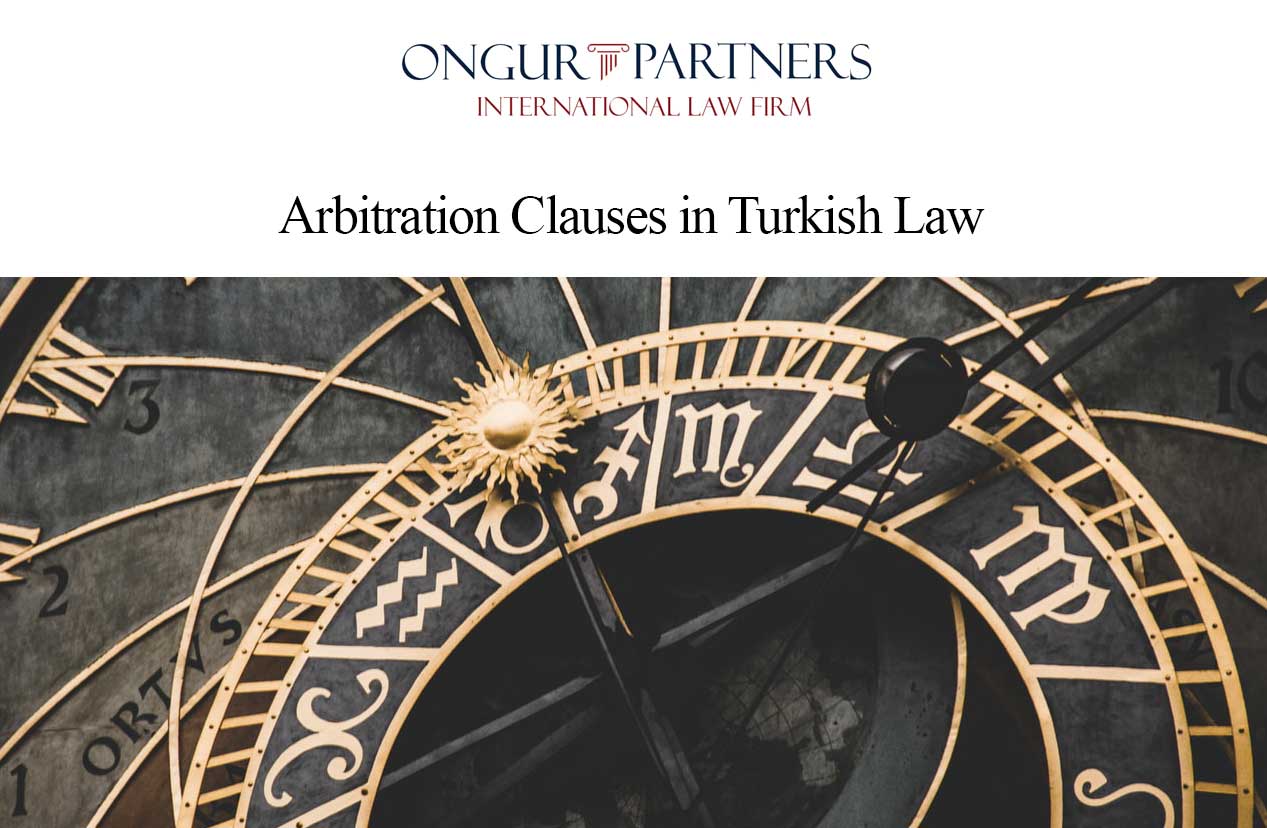Arbitration Clauses in Turkish Law
According to Turkish law, the arbitration clause has a very important role during the interpretation and/or implementation of any contract in Turkey. Considering the fact that arbitration is a very popular dispute resolution mechanism in Turkey the parties of any international or local contract should pay attention in terms of the drafting of an appropriate arbitration clause in their contracts in Turkey.
Especially foreign parties of a contract should receive advice from a well-known arbitration lawyer during their contract negotiation with their Turkish business partners. A Turkish arbitration attorney’s recommendations and revises can prevent future legal complexities and should protect the parties from unpredictable legal complications in terms of the interpretation of a business contract in Turkey.
When drafting an arbitration agreement or clause at the beginning of a long-term business relationship, it is important to bear in mind that a dispute may arise years after the contract between the parties has been entered into. Therefore, it is advisable that Clients consider at the outset:
whether all disputes are to be arbitrated or whether some disputes can be referred to litigation in Turkey,
whether the parties’ associates, affiliates, successors or assigns shall also be bound by the arbitration clause in Turkey,
whether non-contractual claims (i.e. unjust enrichment or tort claims relating to the underlying contract) shall be arbitrated in line with Turkish Law as well,
which laws will govern the arbitration in Turkey or abroad,
whether the arbitration will be ad hoc (i.e. not administered by an arbitral institution) or institutional according to Turkish Law,
whether the dispute should be resolved by one or three arbitrators in Turkey or abroad,
where the arbitration will take place (as the seat of arbitration determines important procedures relating to arbitration and whether the claim is arbitrable), in Istanbul, Paris, Milan, etc.
which language the arbitration shall be conducted in, Turkish, English, Italian or any other language
which rules are to be used by the arbitrators in resolving the dispute in Turkey
Have you consulted with a Turkish arbitration law expert the contract to avoid legal complexities
Standard Recommended Clauses by Institution:
While Clients may wish to refer their disputes to ad hoc arbitration to avoid bureaucracy and have more control over the arbitral procedure and costs of the arbitration, it has the disadvantage that its effectiveness relies heavily on the parties’ willingness to agree on the procedure to be followed when in most cases they are already in dispute. In contrast, in Turkish law arbitration institutions that administer the proceedings offer certain advantages that can be outlined as follows:
Main institutions constantly revise their rules to meet the evolving needs of arbitration proceedings in line with Turkish Law,
They ensure time and cost-effectiveness, thanks to their specialized and multilingual staff who oversee the proceedings where Turkish parties standing,
They offer more predictability of the proceedings and less procedural breakdowns, due to time-tested and clear institutional rules in compare with Turkish Courts
They have access to a wider pool of expert arbitrators and efficient mechanisms for their appointment in line with Turkish arbitration law requirements,
The enforcement of arbitral awards from the main institutions is easier before Turkish national courts.
A good Turkish arbitration lawyer and/or an expert arbitration law firm in Turkey should define a clear strategy to lead you in terms of which arbitration institutions would be convenient for your contract to secure the implementation of the contract that you are going to sign with your Turkish business partners.
As to which institution should be selected to administer the arbitration proceedings in Turkey, the answer largely depends on the rules provided by each institution and the needs of the parties regarding the involvement of the institution, time management, costs, and fees, etc. Please see the below presented links for model arbitration clauses of different institutions:
ICC
https://iccwbo.org/publication/standard-icc-arbitration-clauses-english-version/
CAM
https://www.camera-arbitrale.it/en/arbitration/arbitration-clauses.php?id=63
LCIA
https://www.lcia.org/Dispute_Resolution_Services/LCIA_Recommended_Clauses.aspx
Singapore International Arbitration Centre
https://www.siac.org.sg/67-model-clauses Disputes and International




